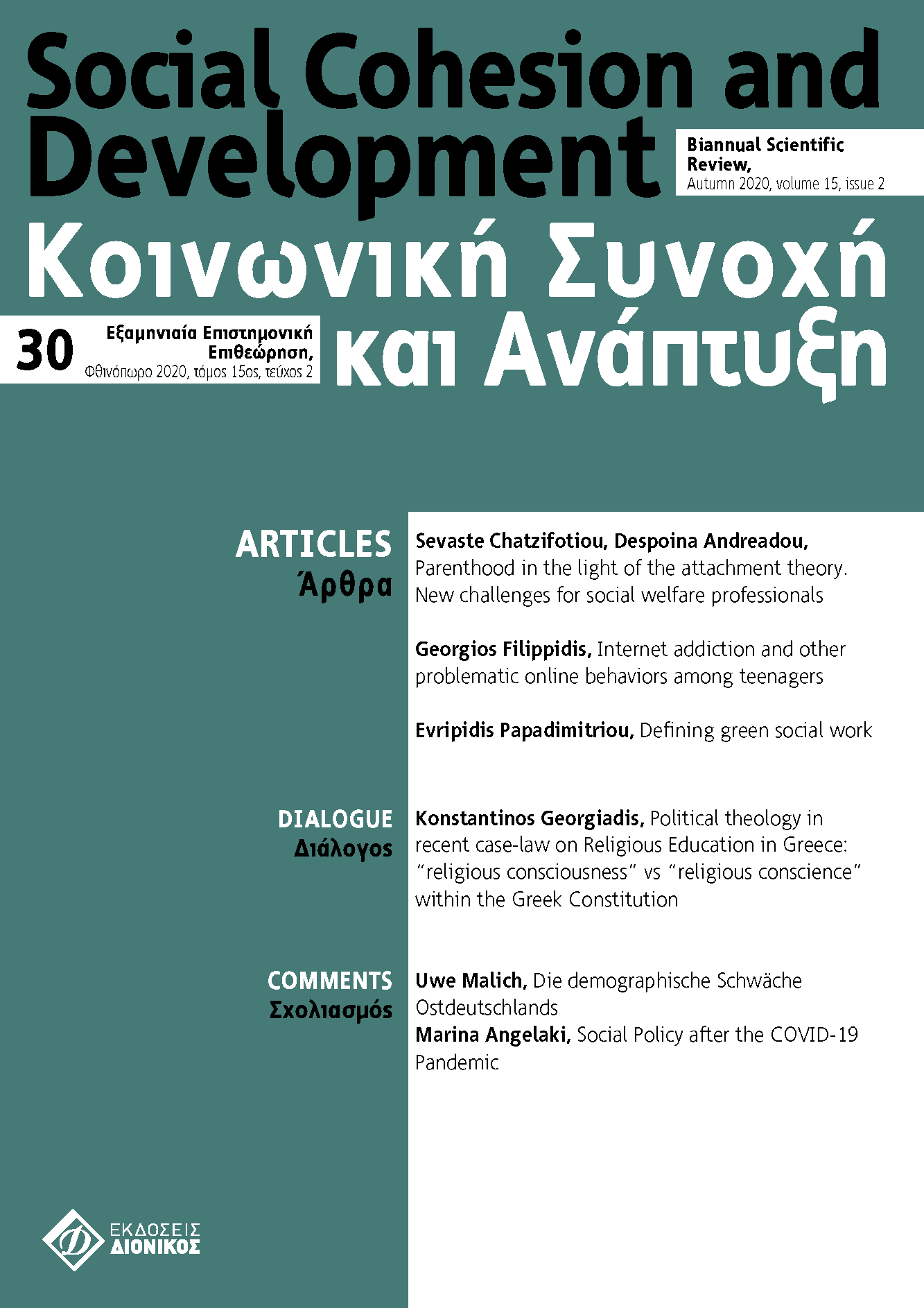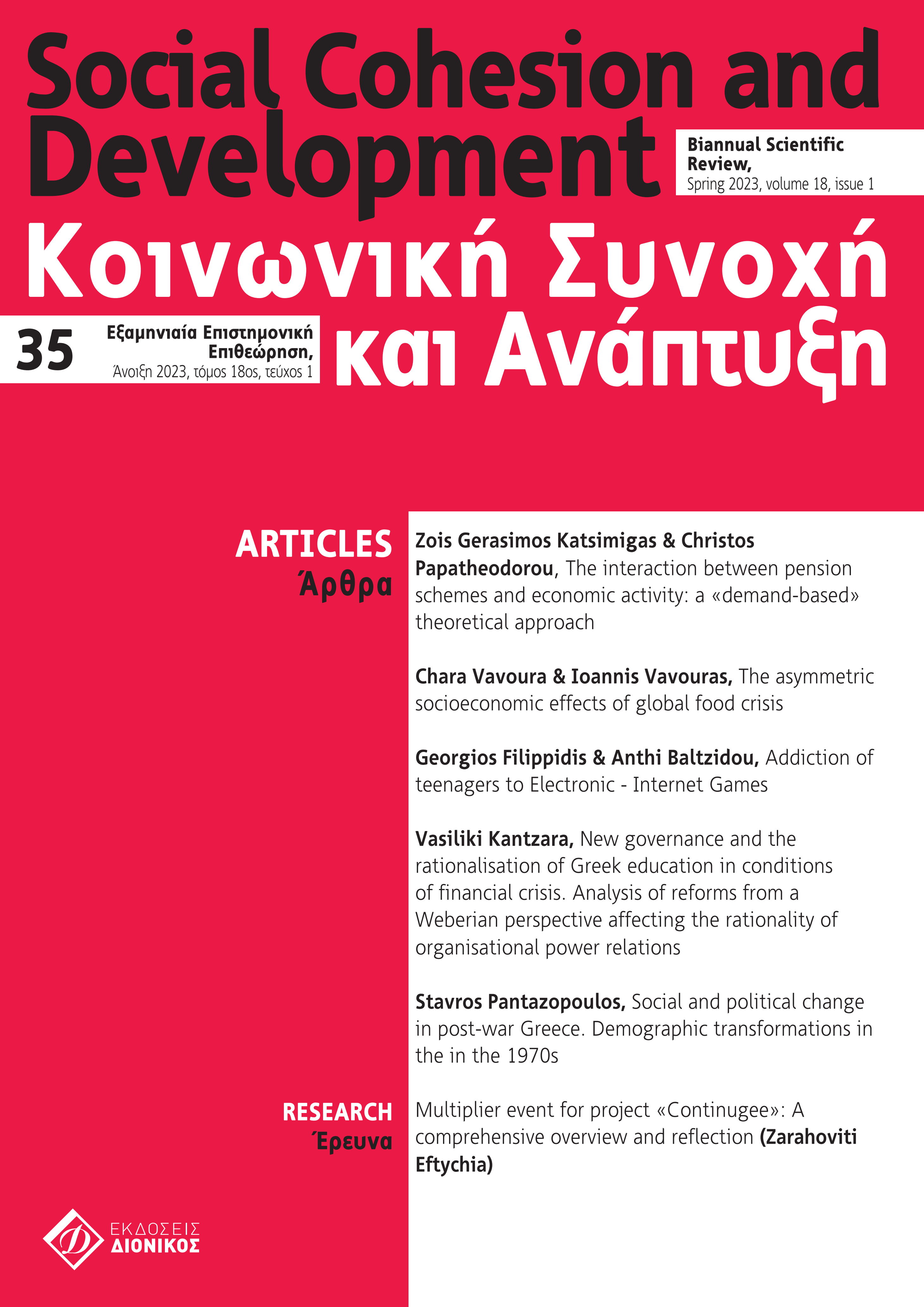Internet addiction and other problematic online behaviors among teenagers.

Abstract
Internet use, in people’s everyday lives, has rapidly increased in recent years globally. It is estimated that today 47% of the world population uses the Internet on a daily basis. The tremendous possibilities to communicate, conduct transactions and interact it offers, have rendered the Internet an indispensable part of everyday life in the modern world.Especially today’s kids and teenagers, we could argue that from the day they are born they coexist with technology and the Internet. Various research efforts in recent years found that the time teenagers spend on the Internet and the range of their online activities are constantly increasing.This excessive use of the Internet by minors, however, despite offering a host of benefits can lead to a number of problems, that in certain cases can turn into a pathological addiction to the Internet and new technologies. The present research aims to examine problematic Internet use during adolescence, a critical period in a person’s life, and how excessive Internet use, combined with other factors, can lead to dangerous situations for the vulnerable psyche of teenagers.
Article Details
- How to Cite
-
Filippidis , G. (2020). Internet addiction and other problematic online behaviors among teenagers. Social Cohesion and Development, 15(2), 121–137. https://doi.org/10.12681/scad.32049
- Section
- Articles

This work is licensed under a Creative Commons Attribution-NonCommercial-ShareAlike 4.0 International License.
Authors who publish with this journal agree to the following terms:
- Authors retain copyright and grant the journal right of first publication with the work simultaneously licensed under a Creative Commons Attribution Non-Commercial License that allows others to share the work with an acknowledgement of the work's authorship and initial publication in this journal.
- Authors are able to enter into separate, additional contractual arrangements for the non-exclusive distribution of the journal's published version of the work (e.g. post it to an institutional repository or publish it in a book), with an acknowledgement of its initial publication in this journal.
- Authors are permitted and encouraged to post their work online (preferably in institutional repositories or on their website) prior to and during the submission process, as it can lead to productive exchanges, as well as earlier and greater citation of published work (See The Effect of Open Access).



